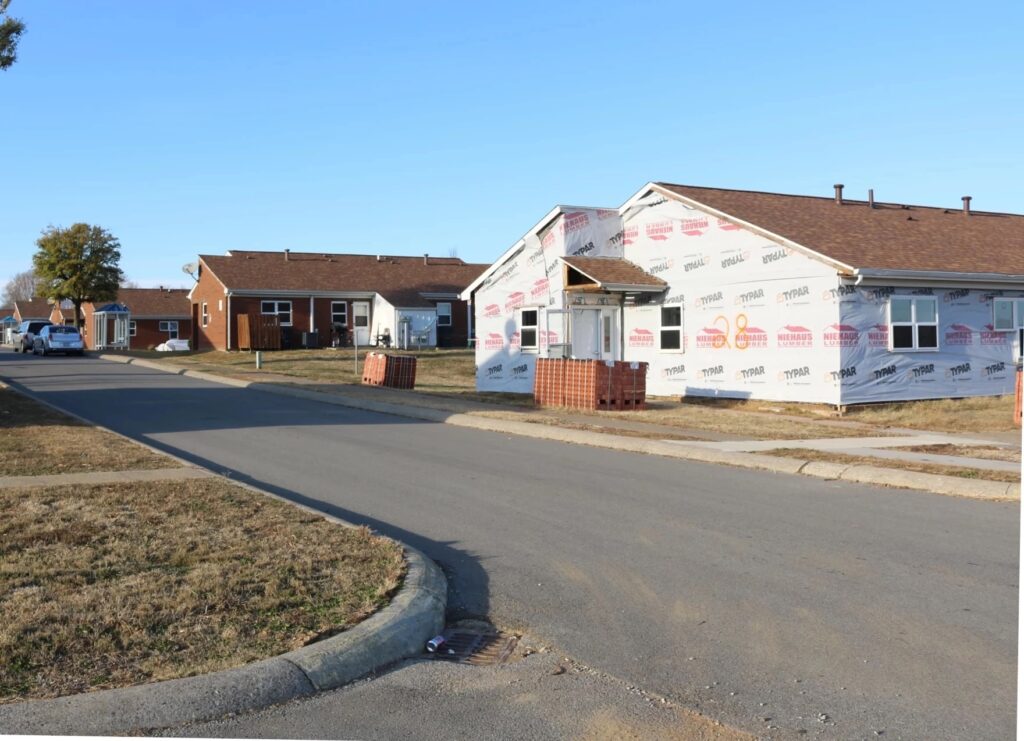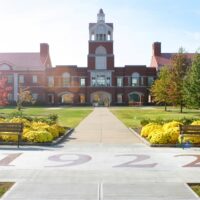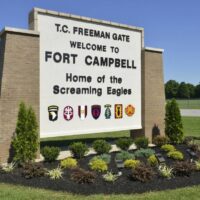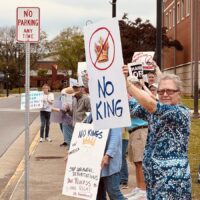Gov. Andy Beshear detailed what he called the largest housing announcement in the history of the Commonwealth on Monday, which he said will go toward building nearly 1,000 rental housing units in four Western Kentucky counties that were heavily impacted by the December 2021 tornado outbreak.

The historic, devastating storm system ultimately produced dozens of tornadoes in multiple states, causing billions of dollars in damage to homes and businesses and killing 81 Kentuckians. Since then, communities across the region have been in a state of recovery for more than two years.
Most of the housing projects approved during the recovery process have been individual homes. However, many of the communities impacted by the storm have voiced needs for transitional and rental housing since the disaster.
The $223 million housing investment comes from the Kentucky Housing Corporation and the state’s Disaster Recovery Program, which is administered by its Department of Local Government. It represents the largest housing announcement in the entities’ history.
The funding will go toward 11 projects expected to construct a total of 953 units – 76 in Christian County, 122 in Graves County, 120 in Hopkins County and 635 in Warren County. [The Christian County rental units are identified as a Wabuck Development project named Smiley Terrace on Glass Avenue.]
Beshear said building new rental properties in Bowling Green, Dawson Springs, Hopkinsville, Madisonville and Mayfield is something that’s been on his mind since the disaster.
“We’ve gone from building houses to rebuilding neighborhoods, but there is always a piece that FEMA did not cover and would not cover,” Beshear said. “Rental units are absolutely critical for all towns but certainly towns of this size … to help a town not just survive, but to thrive.”
Four developers – AU Associates, LDG Multifamily, SOCAYR, Inc. & Bywater Development Group and Wabuck Development Co. – will receive funding to build income-restricted, privately owned and managed apartment complexes. Most units will be two or three bedrooms with a mix of four- and single-bedroom apartments.

Mayfield Mayor Kathy O’Nan called the announcement “heartwarming.”
“It’s painful to see a town you call your hometown just in rubble,” she said. “This tornado struck in the heart of our community, to the heart of our people who were the most vulnerable at some points. It was those people who lived in the subpar rental homes that are now still struggling … these units will [house] individuals and families who have suffered enough, and who continue to stay in Mayfield and continue to help us rebuild that community.”
Beshear and Wendy Smith, the deputy executive director over housing programs at the Kentucky Housing Corporation, broke down the funding pools that were tapped for the investment. Just under $60 million stems from the U.S. Department of Housing and Urban Development’s Community Development Block Grant Disaster Recovery (CDBG-DR) program.
“This is folks in government coming up with a new way to do something, and we don’t always see that,” Beshear said.
The Kentucky Housing Corporation then worked with the state’s Department of Local Government to pool their resources with that CDBG-DR funding. Those additional sources include, according to a release shared by the governor’s office in the wake of the announcement, $134.6 million in tax-exempt bonds, $12.35 million in projected tax credit equity, $6 million from the HOME Investment Partnership Program, $5 million from the National Housing Trust Fund, $4.5 million from the Kentucky Rural Housing Trust Fund and $1 million from the Kentucky Affordable Housing Trust Fund.
Construction is expected to begin by spring 2025. Smith said that it could be as long as two years before people can begin moving into those rental units, but that priority would be given to people impacted by the disaster during the application process.
“There is a preference for [tornado] survivors for a certain period of time, and then it will be made open to anyone who is income eligible,” she said. “This is really going to be workforce and affordable housing folks who are moderate-income and folks who are low-income.”
This investment represents just a portion of recovery efforts in far Western Kentucky since the disaster.
To date, more than $21.6 million has been committed from the Team Western Kentucky Tornado Relief Fund to construct or repair 300 homes, 200 of which have been built. Donations and contributing nonprofits have also helped survivors to build and repair damaged homes and feed and clothe impacted families.
Beshear has said his administration is committed to the region’s long-term recovery.
“Remember, a home is more than four walls. It’s the security of raising your family. And, for those that lost the place they were living, a new unit … a new home means so much,” Beshear said. “We all made a promise, a promise that we would rebuild every structure and every life … We will be there until this job is done.”
This story is republished with permission from WKMS. Read the original.
This story was updated to include information and a link from the governor’s office about the housing projects in each county.






